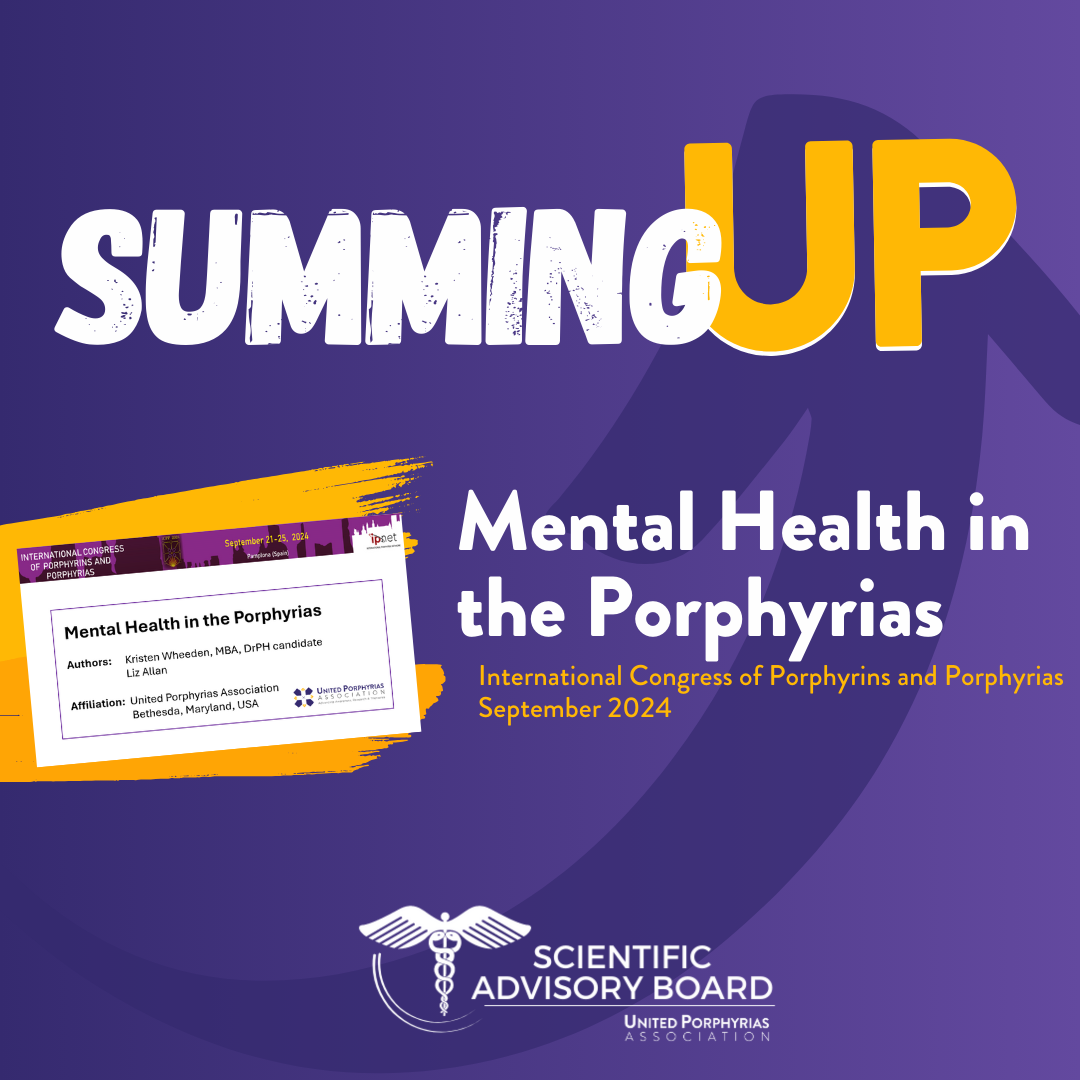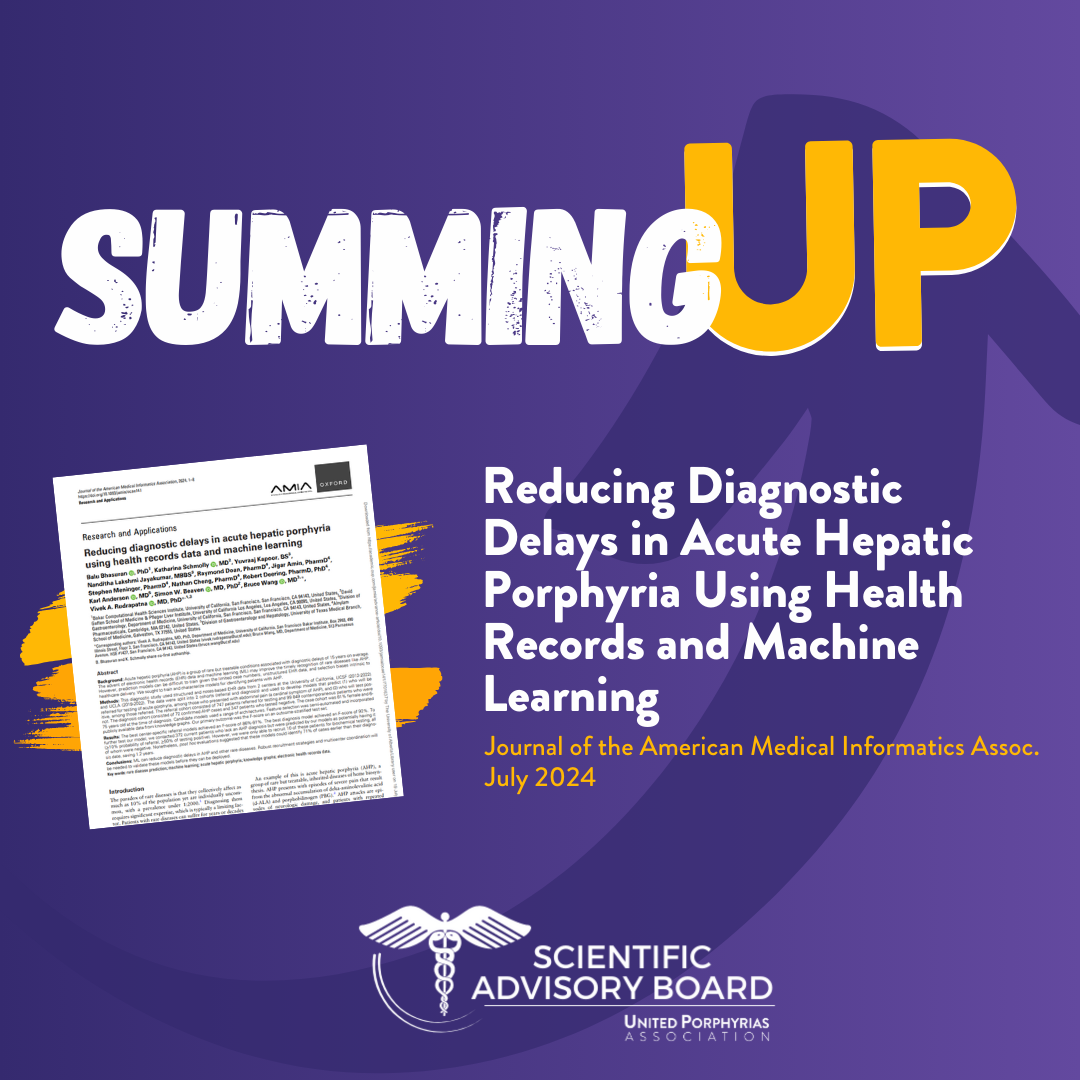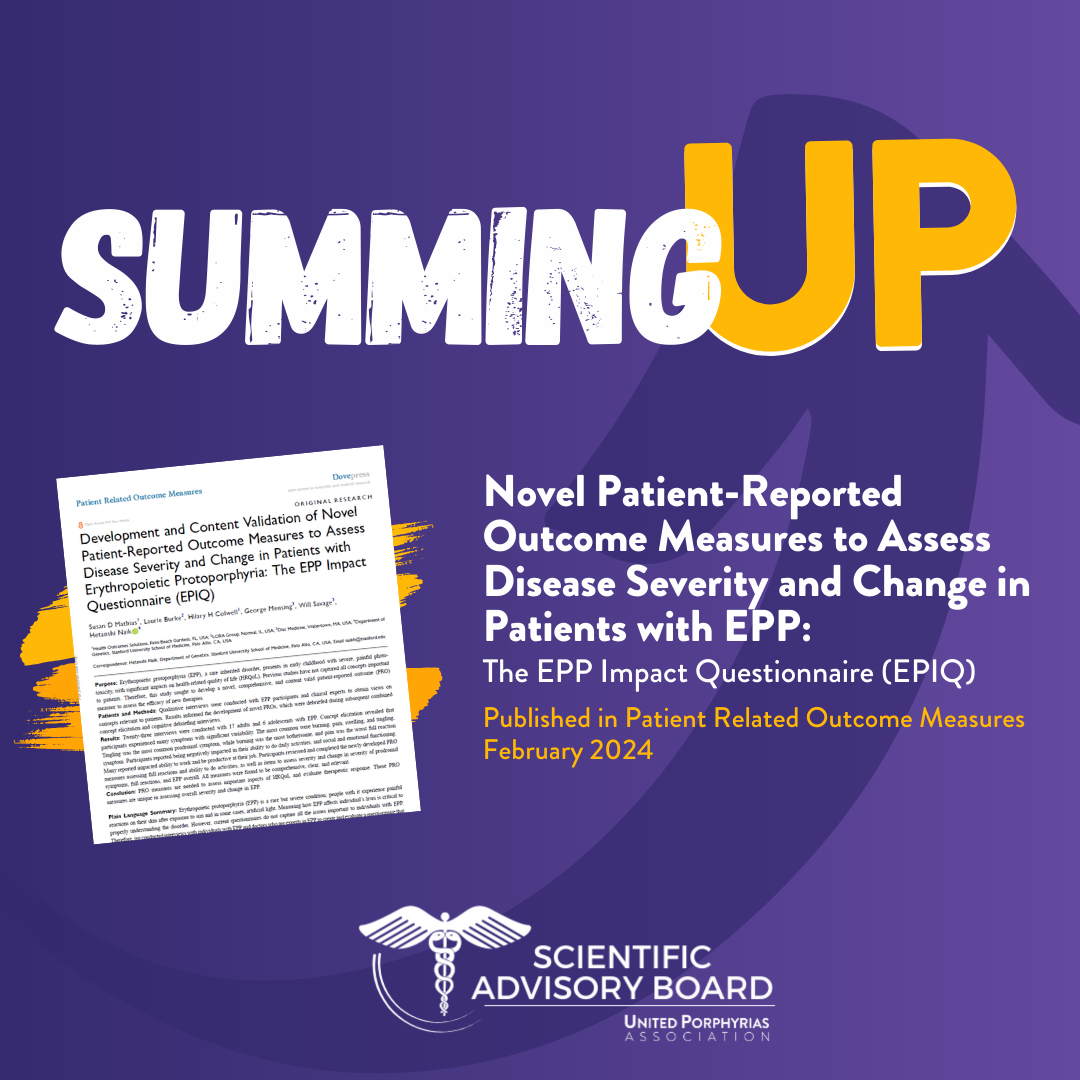Mental Health in the Porphyrias
Summing UP features the latest porphyria research in easy-to-understand summaries that have been reviewed and approved by the UPA's Scientific Advisory Board of porphyria experts.
Mental Health in the Porphyrias
Presented at the International Congress of Porphyrins and Porphyria, Pamplona, Spain
September 2024
The impacts of porphyria on the mental health of patients have been recognized but is not well-researched. This research study asked focus groups of porphyria patients to identify and discuss the emotional and psychological challenges of living with porphyria and identify coping strategies and recommendations for additional supports.
What did this research entail?
Data was collected from two focus groups:
Cutaneous (skin) porphyrias (EPP, XLP and CEP) in May 2024 with 16 participants
Acute hepatic porphyrias (AIP, HCP and VP) in June 2024 with 10 participants
Participants in the focus groups were asked to reflect on and share their mental health challenges and coping strategies, the impact of porphyria on mental and potential resources that could support mental health for porphyria patients and caregivers.
The focus groups were recorded, the discussion was then transcribed and analyzed for themes.
What mental health impacts did the focus groups identify?
There were several mental health challenges that were identified by people with all types of porphyria including: anxiety, depression, isolation, frustration, grief, guilt, feelings of invisibility, lack of control/helplessness and abandonment.
Living with porphyria impacted mental health in several ways including:
The unpredictability of symptoms made it difficult to make plans and impacted relationships
Medical trauma from symptoms, needs or diagnosis being dismissed or not believed
Exhaustion from constant need for self-advocacy
The burden of living with an invisible disease
The emotional toll of receiving treatments and participating in clinical trials
Mental health experience in cutaneous (skin) porphyrias
When discussing their mental health experiences, the cutaneous porphyrias group shared:
Building emotional walls to cope with isolation
The impact of societal misunderstanding and the unpredictability of the disease on their self esteem
Difficulty balancing needs during reactions
The impact their condition on their family
Feeling like a burden
Mental health experience in acute hepatic porphyrias
When discussing their mental health experiences, the acute group focused on:
The sense of instability and uncertainty, with emotional extremes swinging from hope to despair
Grief due to changes in identity, goals and hopes for the future, changes in expectations
Loss of identity
Medical trauma
Frustration due to lack of medical information and guidance
Struggles with productivity, difficulty with “slowing down”
Lack of control
Shame
What resources could better support mental health in the porphyria community?
Focus group participants identified several supports that would be helpful to support mental health in our community including:
Support groups to foster connection and reduce isolation
Mentorship within community
Educational materials to empower patients and caregivers
Financial assistance programs to improve access to mental health care
Community-building initiatives to strengthen the support network
Mental health professionals specifically trained in rare diseases
Conclusions and next steps
There are significant and multifaceted mental health struggles across the porphyrias , with overlapping issues such as anxiety, isolation, abandonment. While there are common themes, the distinct challenges faced by cutaneous and acute hepatic porphyria patients emphasize the need for support and resources tailored to their unique experiences.
UPA is working with our community and partners to advocate for and implement mental health resources, support systems, and educational initiatives to address these unmet needs.
CONTENT REVIEWED BY UNITED PORPHYRIAS ASSOCIATION SCIENTIFIC ADVISORY BOARD






